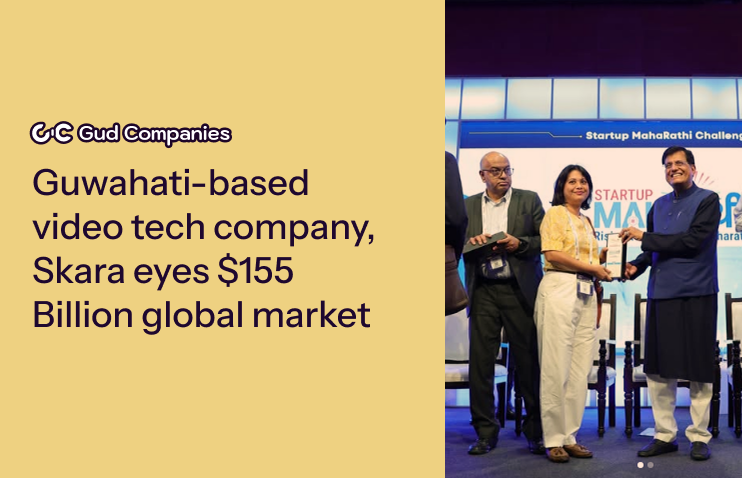Duo from Assam builds open-source operating system for Extended Reality(XR) devices, bags mixed reaction from global dev community
- Uddipta Das
- Jun 30, 2025
- 3 min read
Updated: Jul 6, 2025

XenevaOS began as a hobby project by Manas Kamal Choudhury in 2020. Later joined by Ayushmaan Bora, it grew into a full-scale open-source project welcoming developers from across the world to contribute and scale.
While initially Manas and Ayushmaan worked in isolation, at least until they believed they were ready to share it with the developer community, a member of the Y-Combinator-run social news site, Hacker News(HN) posted about XenevaOS on June 11. It garnered massive reaction from readers of HN, mostly engineers and OS-centric programmers. The reactions were majorly positive and encouraging except for another chunk of skeptics who saw it as a good exercise but lacking any real demand in the market shadowed by giants like Apple and Google.
We were in touch with Xeneva founders before this Hacker News announcement and were in talks for an interview. The interview is posted as it is, here. The HN announcement is surely a testament of the fact that perhaps what XenevaOS is doing has substance to it, especially if we consider their claims of gaps in the domain of dedicated operating systems for extended reality (XR) devices, aka Augmented Reality/Virtual Reality/Spatial devices.
After the announcement, members of the HN community explored the Github repository and the website of Xeneva. Some enthusiastic developers clarified their doubts regarding intentions, functionality and performance while generally lauding the effort of the team behind it.
A member '7thaccount' put forward a very obvious question, a question even we had in our mind. A part of the comment read,' What does it solve that other OS don't?' The commenter goes on to clarify that although they understand XenevaOS's proposition of abandoning support for older hardware and more focused on modern hardware, they are not sure why existing operating systems would not be able to handle 3D UI.
Responding to this, Manas wrote,"We believe there does exist a market gap in places that one quickly doesn't notice...It's quite possible that AR devices will be the future so of course good software would be needed there. Apple has it's VisionOS which is decent but that will forever be limited to Apple products only. There is no proper alternative to that as of yet, although Google and Android are working on soon releasing AndroidXR. But even that is essentially just based on top of the AndroidOS. We're trying to create a robust kernel and a dedicated platform for such devices."
Another comment read, 'The linux kernel essentially provides everything a modern operating system needs, including all the necessary device drivers. Unless you offer a significant selling point, something radically different, or a substantial improvement over, say, Linux or FreeBSD, I don't see a compelling use case for Xeneva OS." To this another reader defended XenevaOS by saying that the same point could have been about Linux during its early stages.

A major chunk of the commenters, however, praised the XenevaOS team and lauded their commitment to the project. Following the HN post, an Indian-origin, now Canada-resident, software engineer, Karthik Kumar Viswanathan said, "Excellent work in writing a non Unix/POSIXy OS. More people should experiment with non standard implementations and have fun doing it." He also added that he maintains a list of open source developers who build their own operating systems and will add XenevaOS to this list. (You can find the list and Karthik's other resources here)
Following this Hacker News announcement, we reached out Ayushmaan and asked about his overall response. Here's his response:
"The general opinion has been mostly positive with a hint of positive criticism here and there, had some people defend us against the one who criticised as well, which was kinda surprising!
But here’s the thing - people only came across our GitHub repository and based all their opinions on just that and the problem with this was, looking at our repo, one can only figure out the current and existing technical state not realising the future plans, goals and vision.
We’ve updated our repo with a documentation so that this happen the next time.
What made us the happiest is the fact that people supported and appreciated us (even the ones who criticised), spoke well about us solely on our technical progress and development. In simple words, they were positive about us even without knowing what we were actually aiming for."
After we consulted a couple of senior engineers within our network and showed them XenevaOS, they also showed signs of similar skepticism. However, when they saw the roadmap that Ayushmaan and Manas has laid out for the operating system, faith was restored in its market potential to some degrees, especially with the duo's plan of partnering with hardware manufacturers, develop early prototype and raise funds. Read the full interview with XenevaOS founders Manas and Ayushmaan, here.



Comments